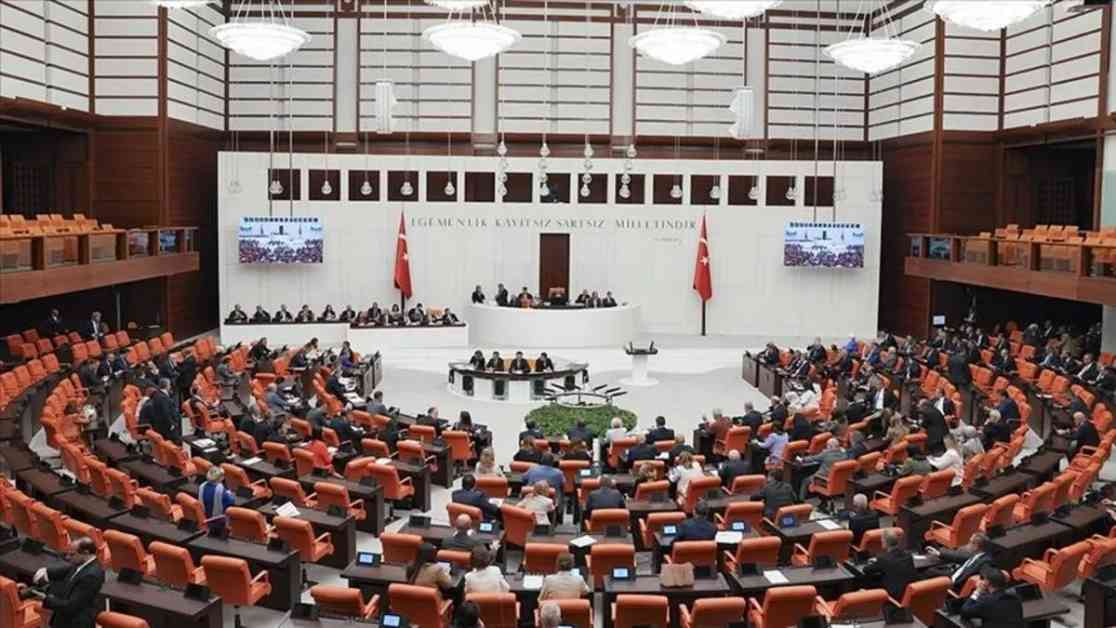Consumer Protection Law Proposal Approved in the Turkish Parliament
The Consumer Protection Law Proposal has been approved in the Turkish Parliament, bringing significant changes to the way consumer credit agreements are conducted. According to the new law, the format requirement for contracts between credit providers and consumers under the Consumer Protection Law can now be established through methods involving verification of consumer identity via communication devices or electronic means. This means that consumer credit agreements will not be valid unless they are documented in writing or remotely.
In line with the regulation allowing consumer credit agreements to be established remotely through distance communication tools, other related transactions tied to the agreement can also be conducted electronically through a permanent data storage medium. For instance, the account related to a specific term credit agreement will be closed upon the payment of the credit if the consumer does not request it in writing or through a permanent data storage medium.
These provisions will also apply to contracts between housing finance institutions and consumers. The new law also defines direct sales systems as a system where independent representatives, distributors, consultants, and similar individuals engage in selling goods or services to consumers on behalf of a direct sales company in exchange for benefits such as commissions, incentives, and rewards. It is mandatory for the direct sales company to be a capital company and meet other conditions specified by regulations.
Furthermore, the direct sales system must not be based primarily on recruiting new direct sellers to the system and distributing benefits arising from this, but rather on the sale of goods or services to consumers, adhering to other principles specified in the regulations. Direct sellers cannot obtain any document that places a fee or debt burden on consumers under names such as renewal, package, fee, or dues for their participation in or stay within the system.
The direct sales company cannot determine the amount or value of goods or services to be purchased by direct sellers to determine their level within the system. Consumers purchasing goods or services within the direct sales system will have the right to withdraw from the contract within 30 days without providing any reason or paying penalty fees. Notification of withdrawal within this period to the direct seller or the direct sales company will be sufficient.
Moreover, the direct sales company will be obligated to establish a system that enables consumers to be informed and to communicate requests and notifications as specified by the Ministry of Trade. This regulation will come into effect 9 months after the publication of the law.
Penalties for Unfair Trade Practices Increased
In order to enhance consumer protection and deter unfair trade practices, administrative fines for advertising and unfair commercial practices have been amended. Individuals who act in violation of obligations specified in unfair trade practices will face sanctions such as “temporary suspension for up to 3 months” or “temporary suspension” of the unfair trade practice, or administrative fines ranging from 60,000 Turkish liras to 600,000 Turkish liras.
If the violation occurs nationwide, the administrative fine can range from 600,000 Turkish liras to 6 million Turkish liras. In cases where all information and documents are not correctly presented to authorized personnel during inspections, a warning will be issued to provide accurate information and documents within 7 days or allow on-site inspections. Failure to comply with the warning will result in an administrative fine of no less than 80,000 Turkish liras, based on one percent of the annual gross income derived from the previous financial year in which the violation occurred.
In cases of incorrect or undisclosed gross income, administrative fines of 6 million Turkish liras for pre-paid housing sales and 1 million Turkish liras for other sales will be imposed. The Advertising Board will have the authority to impose administrative fines within these limits, taking into account factors such as the nature of the violation, the benefits obtained from the violation, the damage caused, the fault of the violator, and their economic situation.
Regulation on Pyramid Sales Systems
The law also addresses pyramid sales systems that violate the provisions of the relevant law by initiating, organizing, or promoting pyramid sales systems through methods that facilitate the participation of many individuals through meetings, emails, or other means, or supporting the spread of such systems for commercial purposes in different ways. Those who engage in pyramid sales systems will be subject to relevant provisions of the Turkish Penal Code.
Furthermore, administrative fines will be determined for direct sales companies that do not comply with the requirements of being a capital company and establishing a system to inform consumers adequately. This regulation will come into effect 9 months after the publication of the law.
The amendment allows the Advertising Board to grant the parties involved the opportunity to reach a settlement in cases of administrative fines. This provision aims to consider the public costs that would arise from legal proceedings related to violations of commercial advertising and unfair trade practices, as well as the benefits of quickly and definitively resolving the violation and process.
New Provisions Introduced
During the General Assembly, three new provisions were added, including some articles from the Law on Certain Regulations Regarding Defense Industry and Amendments to Some Laws, which were postponed for discussion in the Planning and Budget Commission.
With the amendments to the Tax Procedure Law, the correction of amounts tracked in the “investments in progress” account according to accounting standards will result in correction differences that will be shown in a special fund account in the balance sheet’s liabilities and will not be considered in determining the period’s income.
These amounts in the special fund account will be considered in determining the period’s income in equal installments over the period starting from the completion of the investment or the activation of the relevant economic asset up to the end of the fourth accounting period following that period. The amounts tracked in these accounts will be increased annually by the revaluation rate determined by the Law for the previous year. Additionally, no inflation adjustment will be applied to these amounts.
In cases where the business is abandoned during the investment period or after the activation of the economic asset, or if some or all of the amounts tracked in the special fund account are transferred to another account or withdrawn from the business, the amounts not considered in the period’s income based on this regulation will be considered in determining the corporate income of the period in which the business is abandoned or the special fund account is used contrary to these provisions.
The correction differences resulting from inflation adjustments made during the temporary tax periods, including 2024 and 2025, will not be taken into account in determining the taxable income for a group of taxpayers; including companies in liquidation and bankruptcy situations, as well as state economic enterprises and public economic institutions within the scope of the Decree Law on Public Economic Enterprises. The regulation specifies when these correction differences due to inflation adjustments will be considered in determining the taxable income and when they will not.
Regulation for Establishing a New OSB in Samsun
With changes to the Coastal Law, it is now possible to establish an Organized Industrial Zone (OSB) in Samsun within the area with specified boundaries and coordinates, following the zoning plan decision in accordance with the site selection decision.
After the completion of the discussions, the Consumer Protection Law Proposal and Amendments to Some Laws were approved in the vote. Following the approval of the proposal, TBMM Deputy Speaker Celal Adan adjourned the session to reconvene at 14:00.











